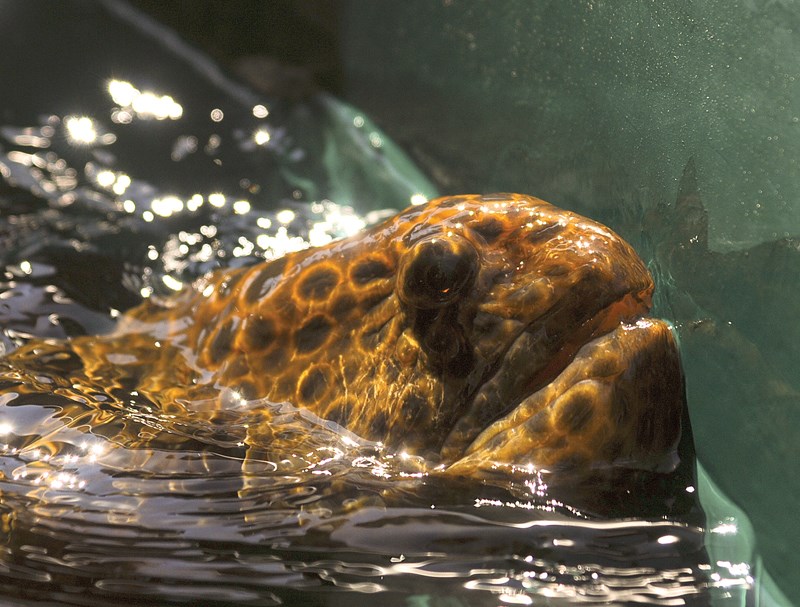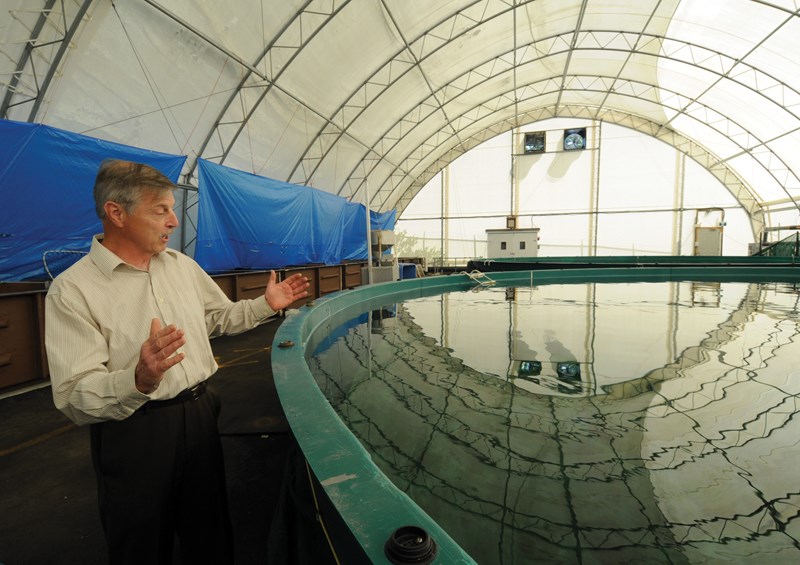The federal Department of Fisheries and Oceans is eyeing some big changes to its research station in West Vancouver.
The Centre for Aquaculture and Environmental Research is soon to become one of two Science Enterprise Centres in Canada – hubs where government, university, industry, First Nations and community members share in research into ecosystems, fisheries and sustainable aquaculture, according to the DFO.
“Researchers generally want to communicate and work with their fellow researchers and so they would come up with problems and realize there were things they could share. This sort of development we’re coming up with is a sandbox for these researchers to do just that, internationally,” said Steve MacDonald, section head for nearshore ecosystems at the lab.
The lab has played host to numerous collaborative studies with scientists from UBC or the Vancouver Aquarium over the years, but these studies tend to have been done on an ad-hoc basis, MacDonald said.
A more formal arrangement with a change in the governance could make it “a world-class research institute” that tackles problems that face the oceans across jurisdictions and scientific disciplines, said Andrew Day, executive director of the Vancouver Aquarium’s Coastal Ocean Research Institute.

“The problems that killer whales are facing, the problem that salmon are facing or the opportunities that we have that relate to economic development – these are things that no one group can solve. We’ve got a tremendous capacity in B.C. – a tremendous knowledge base – but we can certainly benefit by bringing in people from other parts of the world, exchanging ideas,” he said. “What are we doing about ocean noise? This is a global problem. It’s not isolated to here. Ships are managed globally. Can we solve this problem through a centre like this?”
In marine science, there is no such applied science hub in Canada, Day said. This is the direction governments outside Canada have being going in recent years, he added. Day previously spent time working in a similar facility in Holland.
“When they’re there, that’s all they’re doing and they leave all their institutional baggage behind,” said Day. “They’re just focused on whatever it is – plastics in the ocean, marine protected areas.”
Although the exact membership in the enterprise institutes’ leadership and research priorities haven’t finalized yet, it’s likely southern gulf cetacean research would be on the list, Day said.
CAER is unique among government labs in that it has access to both freshwater and marine water, as well as close proximity to an urban centre with research universities and an aquarium.
The water licence it uses for Cypress Creek dates back to the site’s early 1900s history as the Defiance Cannery. It was later the Millerd family’s Great Northern Cannery until the mid-1960s. Under the direction of Canada’s first environment minister in Pierre Trudeau’s government, the government bought the waterfront land for a song and established a lab. The current building was opened in 1987 under Brian Mulroney. It was hit by downsizing under Paul Martin’s program cuts in the early 2000s. At its peak, there were about 50 full-time staff at the station. Today it’s closer to a dozen, plus some other hangers-on, MacDonald said.
The government is opening the doors to the normally tightly secured facility this Saturday so residents can get an idea of the kind of research being done there today. Among projects ongoing: studying the impacts of open-net fish farms including how uneaten fish pellets and feces impact the sea floor, diet formulas for farmed fish, salmonid’s tolerance for rising river temperatures, risk assessments of genetically modified salmon.
The confluence of government science and interests of the fish farming industry may make some uncomfortable, MacDonald said, but it beats the alternative of no research at all.
“I know there is a lot of opposition to it but while (fish farming) is here, we need to be doing our best to regulate it in as proper a manner as we can,” he said. “The question becomes, does the Canadian public want this kind of experimental tank-based research? And the answer seems to be yes … . We want people to feel that this place isn’t a mystery.”
Saturday’s open house at 4160 Marine Dr. runs from 9:30 a.m. until 2:30 p.m.
DFO suggests visitors take transit as parking on site is limited.



